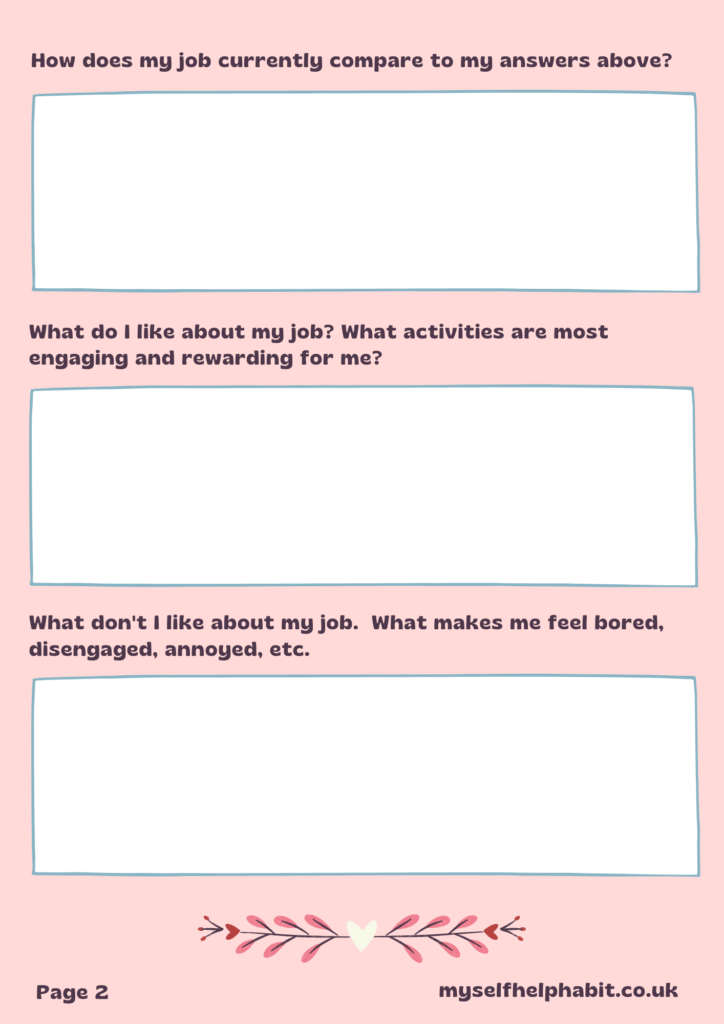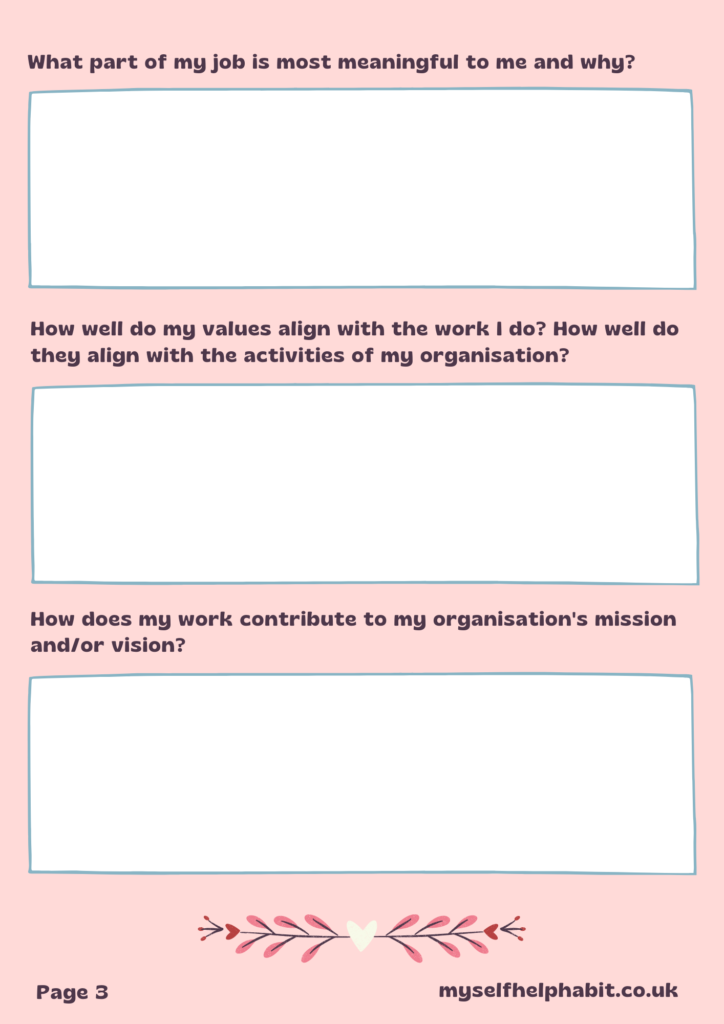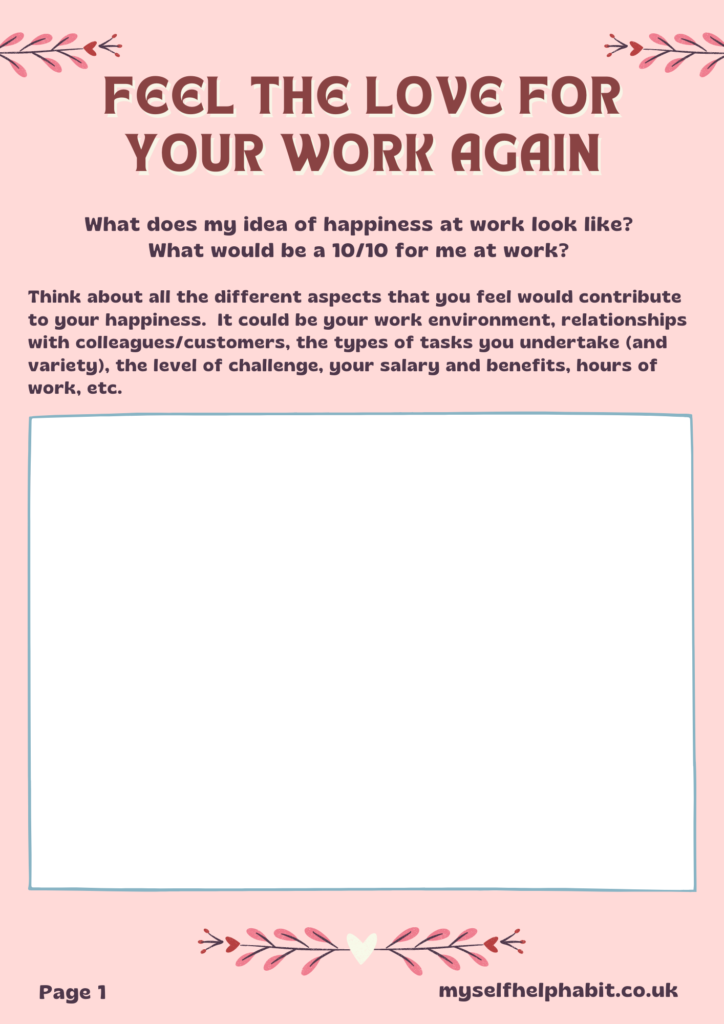
Help! I don’t love my job anymore!
Do you catch yourself watching the clock at work?
Are you tired of the same daily tasks and feeling utterly bored?
Got that Sunday evening feeling of dread lurking in the pit of your stomach?
We all have our ups and downs at work, but when this happens week after week it soon takes its toll, and can leave us feeling frustrated, irritable and completely unfulfilled.
The job that you thought would be interesting and stimulating may not be living up to its initial promise, you may feel that you have outgrown your role, or maybe something significant has changed in your life or at work. Your job may be paying the bills but it is no longer filling your heart with joy!
What’s more, when you are feeling unhappy at work it can start to impact other areas of your life (your health and wellbeing being an obvious one) and may even affect your personal relationships as work issues often have a nasty habit of following you home.
We spend A LOT of our time and energy at work and, ideally, we want this time to be as fulfilling as possible. Obviously there are many things that organisations can do to help employees have a much better experience at work, such as offering fair pay, flexible working, training and development opportunities, wellbeing programmes, encouraging an open and transparent workplace culture, supporting career progression, and responding meaningfully to feedback from their employees, etc. You may even be able to get involved in or initiate change projects in your organisation.
However, the focus of this post will be to look at what you can do at a personal level. Thankfully, there are many things that you can consider to help you gain clarity in your career and generate options that go beyond the ‘Should I stay or should I go?’ tug of war that may be going on in your head right now. Even if you know that you don’t want to hang around for any longer than necessary, you can at least try and make the time more bearable while you plan your next career move.
So, what are your options when you are no longer happy in your job and feel totally stuck?
Take a look through the suggestions below, consider the coaching questions, and then download the accompanying 8-page workbook. You will get a clearer idea of what is bothering you (and why), be able to establish what you want from your current or future role, and develop a plan of action so that you can feel some love for your work again!


Get specific about why you are feeling unhappy at work
Take time to explore what it is in particular that you are unhappy with and why. Once you have identified and considered what is causing you to feel unhappy, you will be clearer about what your next steps need to be.
How are you feeling about work? To get more clarity about your feelings, try naming them more accurately and pinpoint what it is that you are really feeling by using a feelings wheel.
When did this feeling begin? What has been going on for you lately? Has something changed at work or in your life? Changes made at work, including restructures, redundancies, mergers and acquisitions, new management, etc. can all take time to accept and navigate. Furthermore, life events, like becoming a parent or carer, separation, divorce, illness, injury, death, etc. sure have a way of making us re-evaluate our priorities and values!
What is it particularly that you are unhappy with at work? Is it to do with your salary, working hours, the commute, the type of tasks you undertake, dealing with tricky customers, the organisational culture, the relationship you have with your manager (or others), the dynamics within your team, a lack of progression, feedback or recognition, your own feelings of confidence, too much or too little challenge, etc. Write down the concerns that you are having and get it out of your system!
If it is hard for you to pinpoint exactly what it is then try assessing whether any of your values are being compromised. I once had to do this for a job that was no longer feeling right for me but I couldn’t quite figure out why because, on paper, it was something that I felt I ‘should’ be suitable for.
I listed out my top ten career values and gave a rating out of 10 for how much I felt the job aligned with those values and wrote down my reason for the rating I had given. I saw that the job was not aligning well with a lot of the values I had so, while I looked for other opportunities, I made a list of the ways I could make my time in that role more palatable and was also much clearer about what I wanted in my next job.
You may not be able to change things completely but it is important to think about what is within your control. If there is something that you have a degree of control or influence over then think of all the options you have to address whatever it is that is causing you an issue.
List as many options as you could possibly think of, no matter how unrealistic they may seem at first. Explore the pros and cons of each option, decide on the best course of action and then make a plan of the steps you can take to sort things out. This may include preparing for any difficult conversations that you need to have with your manager or other colleagues!
Reconnect with your vision and find meaning in what you do
Sometimes when we feel like we are flagging at work it may be because we have lost sight of our goals and why we made a particular career decision. So, go back to your goals, or whatever vision you have for your career, and ask yourself:
- What drew me to this job in the first place?
- How does this role fit with the wider vision I have for my life and career? How is it helping me to progress?
While bogged down in tasks it is also easy to lose touch with how our work contributes to something bigger. We may not have even stopped to consider what meaning our work has for us and for others.
Here are a few questions to help you find meaning in your work:
- Beyond being paid, why else do you go to work?
- What wider meaning can you derive from the work you do? How does it contribute to the ‘bigger picture’?
- Does the vision and goals that you have for your life or career align in any way with your organisation’s mission or vision?
- How can you think differently about the work you are doing? What would make it more purposeful for you?
Design your own job
We don’t necessarily have to be bound by the duties listed on our job descriptions (and in my experience they often have a way of naturally evolving!) There may be scope to add your own special touches to your job. I’ve seen this happen many times and I think we all have a way of bringing our uniqueness, creative flair and interests into our work.
Job crafting allows you to do just that!
What is job crafting? In their article for the Harvard Business Review, Jane E. Dutton and Amy Wrzesniewski, define it as:
changing your job to make it more engaging and meaningful.
What Job Crafting Looks Like, 12 March 2020, Harvard Business Review
This doesn’t always mean making a massive change to your day to day tasks, it could just mean spending a few minutes or an hour each week working on or towards something that is important or of particular interest to you (and may even benefit others or the wider organisation in some way).
Here are a few questions to consider before you start job crafting:
- Where do you want to be in your career? What sort of tasks would provide the experience that you need to get to where you want to be?
- How do you or your manager see your role developing?
- Make a note of your current duties. What do you want to do more of and what do you want to do less of?
- What do you feel is missing from your role?
- What would you love to learn or what really piques your interest at work?
- What are your strengths? How could you use these more in your role?
- What do you most enjoy doing?
- Who do you love working with?
- What new initiatives could you create or are there existing ones in your organisation that you could get involved in?
These questions may have already sparked a few ideas but if you want to do some deeper reflection on your career to date then take a look at the Career Timeline exercise.
Spot development opportunities
If your day job is no longer challenging you or you feel it is time to develop some new skills, then look out for opportunities that spark your interest and offer whatever you feel is missing from your skillset or experience. There may be existing projects or initiatives at work that you could join or you could even try setting up your own!
After being involved in several career mentoring programmes and later becoming an internal coach, I became increasingly interested in staff learning and development. I identified a gap in my Faculty’s current activities, for informal, one hour development sessions where staff could network over lunch, share experiences, and receive training from colleagues in other departments.
After getting approval from senior managers, and with a team of colleagues who shared the same vision, I organised these networking and development sessions (in addition to my day to day role). This enabled me to work on something I was passionate about (i.e. developing others) and gain skills in leadership and management.
If there is nothing inside of work that you can or want to sign up for then see what volunteering opportunities are available outside of work and explore whether it would be feasible for you to be involved in those.
You could also consider undertaking further qualifications or looking into other development opportunities that would help to stretch you and advance your career, such as undertaking job shadowing or joining a coaching/mentoring programme.
Make your case
Any changes that impact on your work will usually need to be discussed, negotiated and agreed with management and there may be concerns about you taking on extra duties or making time for development activities. So, as well as creating a strong case for making changes to your role, you may also need to show how you can accommodate these changes.
- Are there activities that are inefficient, outdated or pointless that you no longer need to do or could improve to free up your time to do other things?
- Is there someone in the team or elsewhere who would be happy to take something off your hands? Perhaps they are looking for a new challenge or development opportunity too.
- Are there quieter times of the day/week/month/year where you could work on other projects or undertake further development?
- Could you negotiate new start/finish times or days that you can allocate to your development? Can any cover be arranged for certain parts of your role?
Get connected
Are you feeling isolated in your role? I know I did for a while when I left the world of employment! I was used to working in a shared office space and really missed the chats I used to have with all my colleagues so I reached out for a support network. I now have an accountability buddy who I meet with fortnightly and am part of a couple of memberships and professional groups where I get to meet with other business owners on a weekly and monthly basis.
Building relationships with others, feeling a sense of belonging and connection may be really important to you so find a way to meet up regularly with colleagues who you like and trust and share similar interests to you. You may be able to arrange a weekly lunch or coffee with them and use the time to catch-up and share ideas or issues. Forming and maintaining these supportive relationships may help to get you through the tough times at work.
If you are thinking about leaving your job (or just want to keep your options open) then look out for networking opportunities that can help you to make the connections and build the relationships that will lead to your next move.
Are you engaging in too much negativity at work?
Now, I’m not knocking a good old venting session! It can be soooo cathartic to get things off your chest and, of course, we all have a need to be heard. However, it can be easy to get drawn into the constant gossiping and complaining that goes on in some workplaces. On top of that, at the end of the working day, we often give our loved ones the run down on all the things that went wrong at work but miss out what actually went well. This can then impact on our feelings about work.
So, if the level of negativity is getting a bit too much at work then try a coaching approach instead. Listen to your colleagues, reflect back what you’ve heard (you don’t have to agree with them), and then encourage them to come up with their own solutions to their problems. Alternatively, you can acknowledge what has been said and then move the conversation on to a more ‘neutral’ topic (like a task they could help you with, where you are going for lunch, plans you have made for the weekend, etc.)
You can also get some more balance and perspective by taking a moment to stop and acknowledge the positives in your working day. You could ask yourself:
- What went well today?
- What did I manage to achieve (include any small wins)?
- Did a colleague or customer do something that I really appreciated or did someone inspire me today?
Write your reflections down in a journal or try dropping the more positive aspects of your day into the conversations you have about work and see if, over time, this makes a difference to how you feel about your job.
Examine the thoughts you are having about work
We can all fall victim to our unhelpful thinking habits. These can colour our view of our situation, leading us to make false judgements about ourselves or others, and causing us to feel low or anxious.
There are many different ways of thinking that can become habitual and unhelpful to us. It may be worth capturing some of the thoughts that you are having about your job to see if they are a product of any thinking distortions. This may include catastrophising, jumping to conclusions, thinking in ‘all or nothing’ terms, etc. An article by Melody Wilding for Forbes, entitled 8 Toxic Thoughts Every Leader Faces (And How To Beat Them), provides some useful examples of how thinking distortions show up in the workplace.
Once you have noticed such thoughts, try challenging the evidence you have that these thoughts are true and reframe them into more helpful and empowering thoughts. GetSelfHelp also have a good resource to help you to recognise Unhelpful Thinking Habits and find alternative ways of viewing your situation.
Test your assumptions
I have heard many generalisations and assumptions over the years as I have helped people with career related issues (such as, ‘There are no jobs out there at the moment’, ‘I’ll never find another job that pays me this well’, ‘They will never agree to that’, etc.)
All of which can keep you stuck in a rut!
Before you write off any ideas or opportunities, put your assumptions to the test and do some more research. There may well be challenges to overcome but you can work out how you are going to get through them.
Another key lesson I have learned is… If you don’t ask, you don’t get! Often requests or suggestions that I assumed would be turned down were at least considered by managers and, to my surprise, sometimes even agreed to! You may not get everything you want, but you may get some of what you want and that can make life a bit easier.
Is it OK for now?
In an ideal world I’m sure that we would all love to be getting paid for living our purpose and spending our time working on the things that we are passionate about. Eventually, you may even have plans to turn a hobby or passion of yours into a small side project and then a fully fledged businesses or to look for work that is more aligned with your interests.
Perhaps your current job really is a means to an end and that’s all you need it to be (for now!) If that is the case, and changing jobs does not appeal to you just yet, it may be helpful to look at your job as something that helps you to fund other areas of your life that are more meaningful to you.
What does your job help facilitate in your life? Write a list to remind yourself of all the things that it enables you to do or have. This can be useful to look back at when you have had a bad day!
I hope this post has given you some food for thought and even some actions to take forward! A question to ask yourself when you are feeling unhappy in your job, but are reluctant to take action, is ‘What is this costing me?’ Think holistically, about the impact this is having on your life right now and, possibly, in the future.
Your answers to these questions may also help you to take some steps forward:
- What are the benefits of not taking any action?
- How would you feel in a year’s time if nothing has changed?
- What are you losing by not taking any action?
I strongly believe that you deserve to be happy and fulfilled in the work that you do. If you decide that you want to move on from your current role then take some time to think about what you really want from your career before you set up your job search and update your CV. You will then be much more focused and able to identify the opportunities that are right for you.





